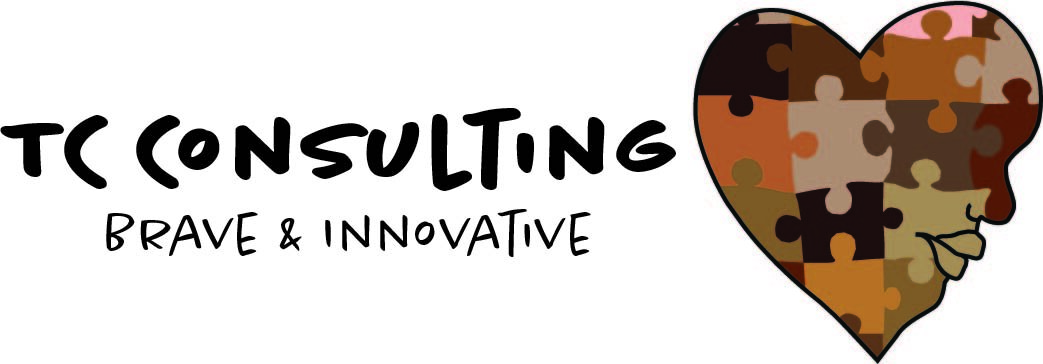Going Beyond the Surface: Diversity, Inclusion, Equity, and Social Justice
Diversity, inclusion, equity, and social justice are trendy concepts in society today. Some companies and institutions have a basic understanding and standard for diversity, inclusion, equity, and social justice. Typically being diverse is having a representation of marginalized members from different communities, such as race, ethnicity, gender, sexual orientation, religion, social class, and more. Diversity could also entail training and workshops that cultivate social awareness without providing time for members to ponder moving from learning to actively shifting problematic norms. Then, inclusion for businesses and schools involves creating adequate space for different members to share their perspective. Equity for schools and companies seems to be a goal or mission that is a challenge to actualize in reality. Institutions and businesses have the intent of understanding diverse needs and being inclusive, yet the outcome of their efforts does not yield to inclusivity for everyone. Social justice from a ‘woke’ standpoint, surface-level awareness, is advocating for current social issues through protests or having debates on social media without understanding the historical context or the continued oppressive harm.
What does diversity, inclusion, equity, and social justice really entail?
Diversity- Acknowledging, valuing & welcoming differences.
Inclusion- Examining who is excluded/included, pondering how & why, & strategizing ways to incorporate the marginalized to be seen, heard, & centered.
Equity- Identifying factors that dehumanize others, assessing why & how, & determining ways all varied needs can be met effectively.
Social Justice- Working to abolish oppressive limitations and dehumanizing norms for all people and communities.
Notice that all four build off each other:
Diversity is a starting point to recognize, value, and welcome difference.
Inclusion is an intentional effort to create space and support for the minoritized.
Equity is a launchpad to holistically shift oppressive structures by identifying harmful actions and thoughts (dehumanizing messages, policies, and cultural norms), assessing diverse needs, and creating socially just actions, mind-frames, practices, policies, and more.
Social Justice is a framework to dismantle any oppressive social barrier that dehumanizes and limits different people or communities.
Therefore, processing such concepts is crucial to truly understand the purpose of building a climate that has openness for varied ways of being. Some will attempt to learn the concepts to weaponize their biases and stereotypes. Others learn the concepts to appear ’woke’ (in the know). Then, some make an intentional effort to cultivate knowledge to shift their problematic norms and behaviors, strive to do this. Learning the concepts is only the beginning and a vital piece to understanding what is required for progressive transformation to occur.
When institutions and companies provide fragmented diversity, inclusion, equity, and social justice efforts, members experience confusion and frustration from a disconnect between perceived goals and lacking actualization. A source of the disconnect could be cultural illiteracy, which is “a lack of understanding, knowledge, history, politics, social norms, value systems, and belief systems of cultures other than our own” (Stewart, 2015). Cultural iliteracy perpetuates systematic oppression where ignorance, neutrality, and explicitly harmful norms and behaviors continue to be the socialized standard. Consequently, there always will be missing links with improving such efforts without meaningful awareness of past and current social issues and the contextual scope of organizational or institutional practices and values. Thus, companies and institutions need to pause. Then, assess how they conceptualize and live out these concepts to identify if they are doing enough, need to shift efforts or restructure initiatives entirely.
Reflective Questions to gauge companies and institutions diversity, inclusion, equity, and social justice efforts entail:
How are diversity, inclusion, equity, and social justice perceived by leadership, employees, or students?
What needs to shift about these perceptions to promote support for each?
Why do diversity, inclusion, equity, and social justice matter for your organization or school?
What ways is each grounded into the organizational or institutional mission, values, and practices?
What is the organization or institution’s learning edges with diversity, inclusion, equity, and social justice?
Which areas of the organization or institution need more integration of diversity, inclusion, equity, and social justice to enhance productivity and creativity? If so, how?
How could internal and external resources be utilized to develop or revamp diversity, inclusion, equity, and social justice efforts?
Source
Stewart, R. [Tedx Talks]. (2015, February 5). Cultural (il)literacy: What modern America needs to know [Video file]. Retrieved from https://www.youtube.com/watch?v=Y9Xnkp4o6nU


